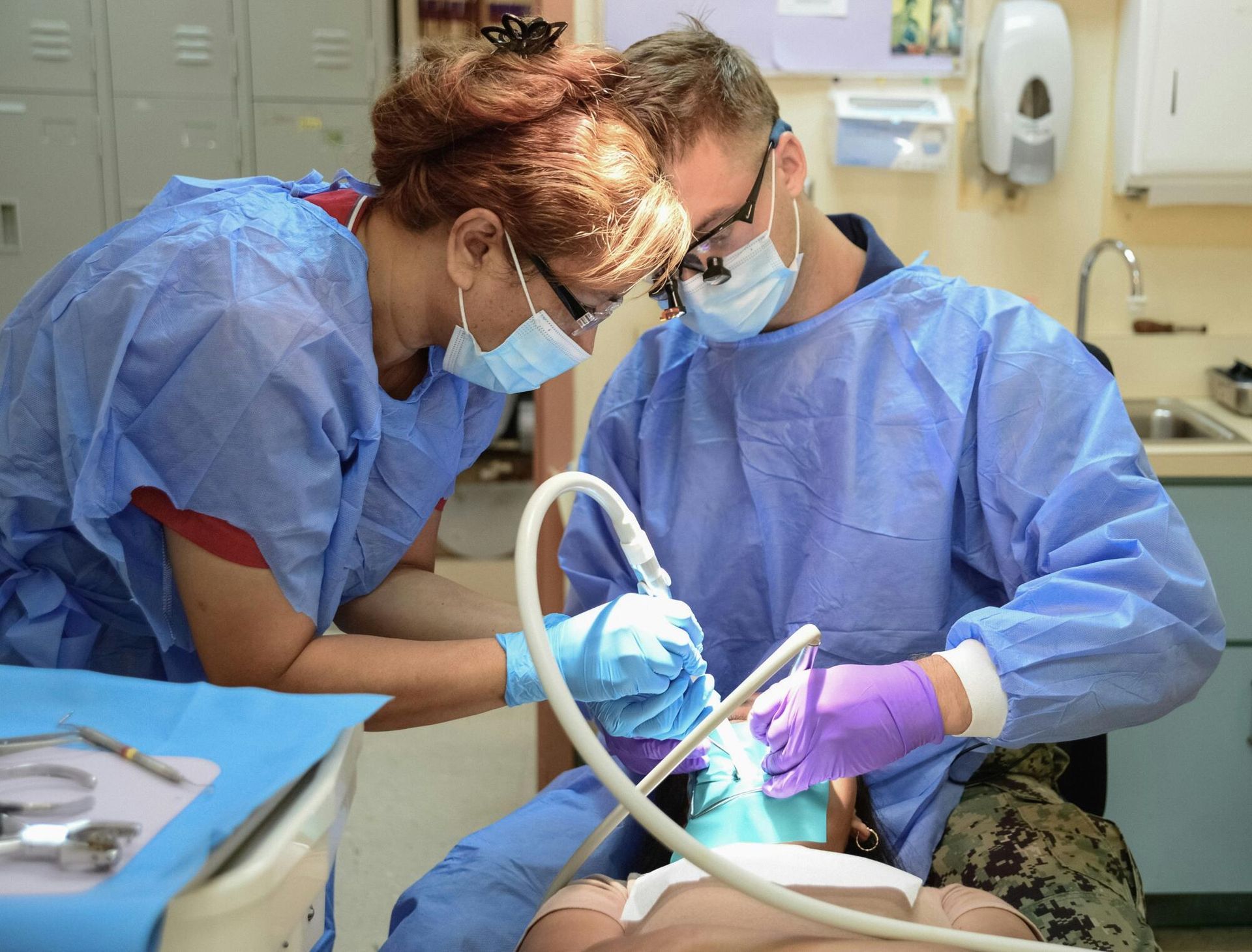Can You Prevent TMD? A Guide From a Dentist in Burke, VA

Did you know that TMD affects around 10 million people? TMD can cause lasting jaw pain and discomfort that can affect your quality of life.
While TMD can be unavoidable for some, there are several lifestyle factors that can increase your risk. Without education or treatment, you could unknowingly be participating in activities predisposing you to TMJ pain later on.
For example, things like chewing gum or opening your jaw too wide can put chronic stress on your temporomandibular joint. Are you wondering what you can do to prevent TMD or stop reoccurrences?
Luckily, we have a must-read article for you. Keep reading on and learn more about what TMD is, how it occurs, and how you can take steps to prevent or treat it today.
What Is TMD?
Temporomandibular disorder (TMD) or temporomandibular joint dysfunction (TMJ) is a disorder affecting your jaw. The temporomandibular joint connects your mandible (lower jaw) to your temple.
One of its primary roles is to help the jaw open and close. Since it is a joint, there are several components that comprise it, including:
- Joint capsule
- Disc or cartilage
- Ligaments
TMD is when there is pain or impaired joint mobility. Other than pain and limited movement, some of the other symptoms of TMD are:
- Muscle stiffness
- Jaw locking
- Headaches
- Vertigo
You can also start experiencing dental issues, like worn teeth or malocclusion. Additionally, you may also only have TMD symptoms on one side.
What Causes TMD?
A head or neck injury can be one of the causes of TMD. Other common TMD causes are:
- Teeth grinding
- Clenching
- Arthritis
- Stress
A qualified dentist can examine your bite alignment and teeth. They can advise on night guards or other ways to mitigate grinding and/or teeth clenching, especially at night.
How To Treat TMD
One of the best ways you can treat temporomandibular joints is through a specialist. Physical therapists, dentists, and surgeons all work closely with TMD and help you with:
- Dental corrections
- Surgical joint replacements
- Rehabilitation
Dentists are one of the first lines of treatment. Dentists have specialized training working with teeth, mouth, and jaw disorders. They can perform physical exams and order x-rays to get a clearer picture of your TMD discomfort.
There are also at-home remedies you can try if your symptoms are mild. First, if your symptoms tend to line up with higher levels of stress, take measures to reduce stress, such as meditation, yoga, or mindfulness.
Next, limit jaw movements and hard foods to chew, such as jerky or gum. You can also use ice to reduce pain and swelling or try over-the-counter medication like ibuprofen.
Can You Prevent TMD?
In short: yes! Following some of the steps above can treat your TMD and prevent future reoccurrence. The best way you can start preventing TMD is by looking at your daily habits and lifestyle.
Clenching teeth leads to added strain on your TMJ and can lead to dysfunction later on. Try and keep a relaxed jaw, with your teeth slightly apart. Avoid chewing gum or other habits that contribute to clenched jaw muscles.
When you use your jaw for chewing foods or gum, disperse the chewing equally between both sides. Sometimes, TMD can occur with overuse on one side.
Lastly, take into account any neck injuries or pain. Sometimes, head or neck injuries contribute to TMD, and research shows that rehabilitating the cervical spine and improving positioning can also help with TMD.
Who Is Most at Risk for TMD?
While TMD can affect anyone, it is most common in women and younger adults. There are a few reasons why females are at a higher risk.
They have smaller jawbone structures than their male counterparts. Additionally, hormonal fluctuates can lead to looser ligaments and increased strain on temporomandibular joints.
Lastly, stress and genetics may also play a role in the development of TMD. If you have a history of chronic pain or fibromyalgia, talk to a dentist or specialist about preventing TMD.
How Can a Dentist in Burke, VA, Prevent TMD?
A dentist in Burke, VA, can help prevent TMD by addressing problematic issues early on. For example, they may notice problems with your alignment that could predispose you to TMD on one side.
A dentist might suggest corrective braces to correct your bite and prevent future TMJ problems. Additionally, they can see any teeth wearing that indicate grinding or over-clenching.
Visiting a dentist regularly is important for your oral and jaw health since infections or mouth injuries could increase the risks. On the other hand, not treating TMD can lead to several poor oral health outcomes.
How To Find a Dental Clinic Near You
To start preventing TMD and improve your oral health, you need a well-rounded family dental clinic. To find a clinic that fits your needs, ensure you ask about their treatments and services.
A dental clinic that specializes in TMD will have advanced technology and equipment to assess your jaw and alignment. You may also want a clinic that focuses on cosmetic dentistry. Fixing your bite could prevent future injuries, improve chewing, and possibly prevent gum disease or other issues.
Do You Have TMD?
Have you ever had TMD symptoms or are worried about developing them? TMD affects a large portion of the population, and there are several preventable steps you can start taking today.
While adjusting what you eat and how you move your jaw throughout the day can make a difference, you may still benefit from seeing a family dentist. At Dental Care Burke, we specialize in TMD symptoms and treatments.
Contact us today to learn more about getting started!












